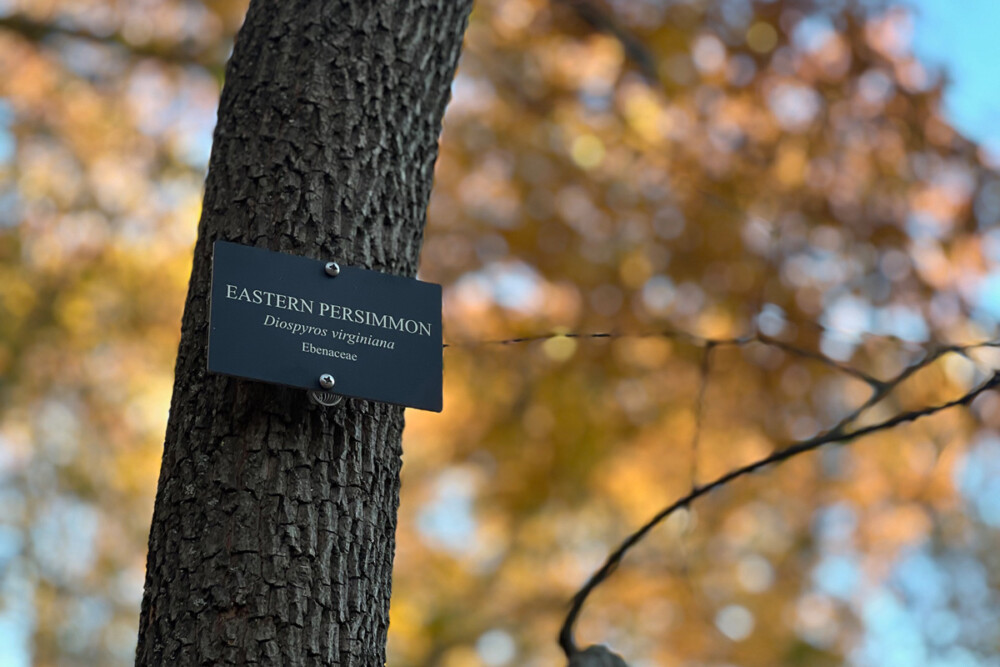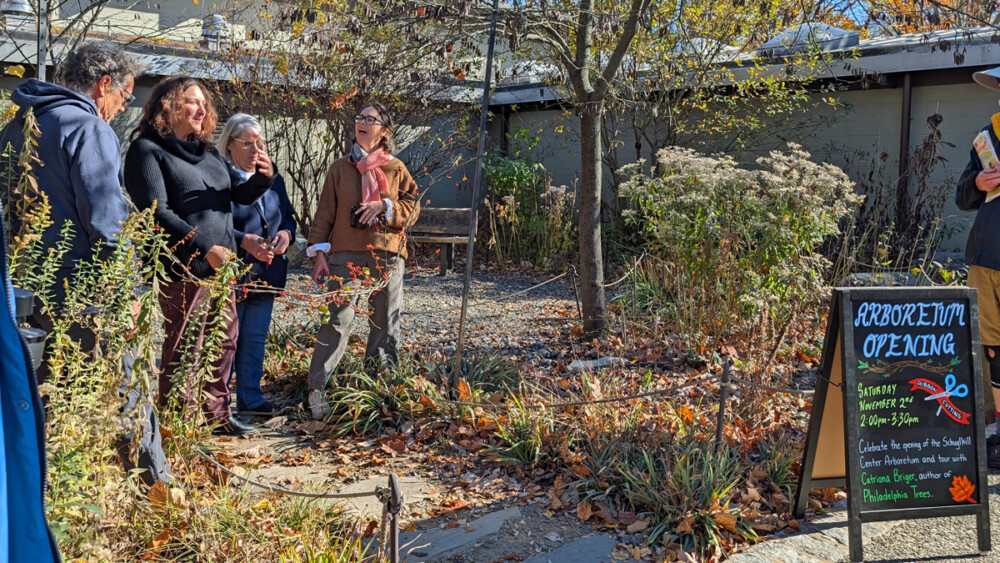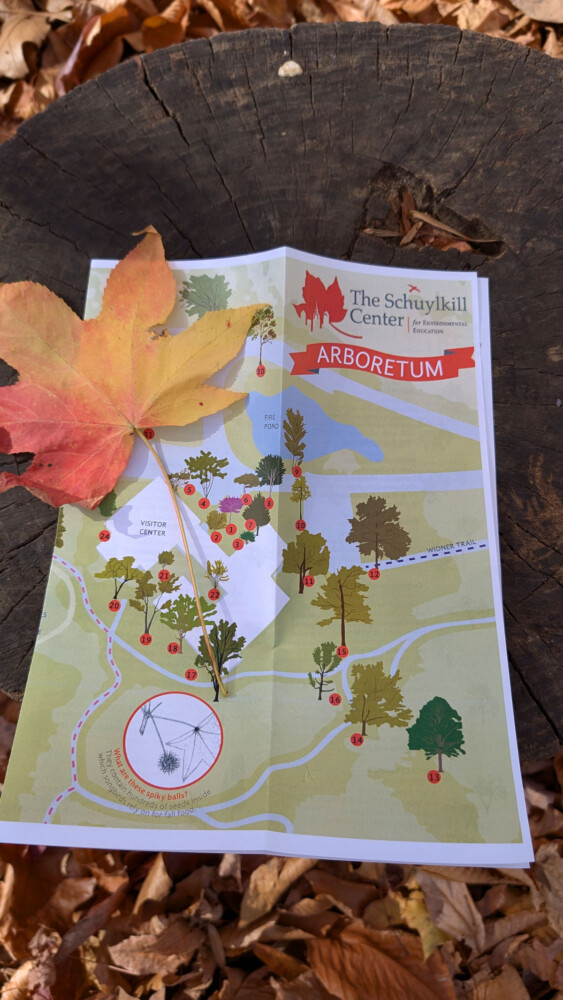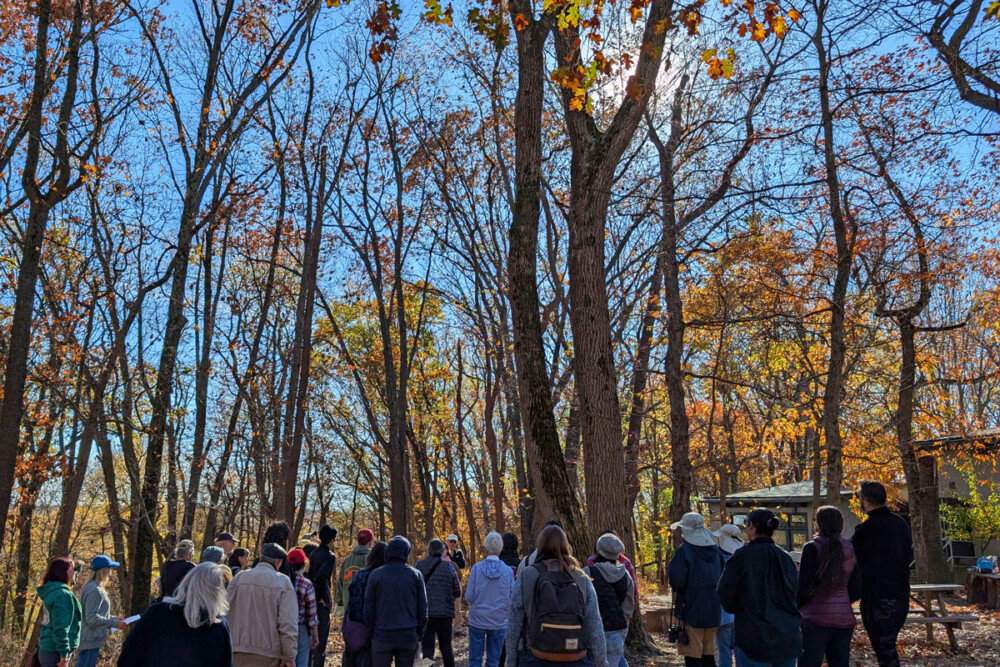
Exploring Schuylkill Center’s accredited arboretum: a commitment to native trees
Discover native trees, urban ecology, and vibrant community engagement at Philadelphia’s newly acclaimed arboreal landmark.
Known for its abundant ‘tree streets’ and the state’s namesake (Pennsylvania means Penn’s Woods), Philadelphia is the unofficial City of Arboreal Love.
The city adds another distinction to its leafy legacy: the Schuylkill Center for Environmental Education in Roxborough is now an Accredited Arboretum.
Recently awarded a Level I ArbNet Arboretum Accreditation, the Schuylkill Center is now listed in the Morton Register of Arboreta, a global database of arboreta and gardens dedicated to woody plants. The Schuylkill Center Arboretum comprises various species native to Pennsylvania, including the American Beech, Northern Red Oak, Black Gum, and Eastern Cottonwood. The expansive canopies of these mature specimens provide shade for all our guests inside and outside the Visitor Center and support the ecosystem with seasonal springtime flowers, berries, and winter coverage.

The ArbNet Arboretum Accreditation Program is the only international program that establishes and recognizes arboretum industry standards. To earn a Level I certification, Schuylkill staff submitted 25 specimens and met essential standards, including an arboretum plan, governance, an arboretum collection, staff or volunteer support, education, public programming, and a commitment to tree science research and conservation.
A living lab of trees
“The Schuylkill Center’s new arboretum designation – which involved cataloging trees and adding identifying signage – creates a marvelous opportunity for students and visitors alike to learn about the native trees of our region,” said Catriona Briger, author of Philadelphia Trees. Briger led the arboretum’s first visitors, including Schuylkill Center friends and members of the Hinge Collective, on November 2nd.

The Center uses its 365 acres of fields, forests, five ponds, streams, and hiking trails to foster appreciation, deepen understanding, and encourage environmental stewardship. The branches of their mission include inspiring, meaningful connections between people and nature: diverse events, innovative programs for all ages, stewardship and volunteer opportunities, ecological restoration, and free access to its unfettered grounds.
Rooted in community
From 2008 to 2018, the city lost 6% of its tree canopy – equivalent to 1,000 football fields of trees. In response to the study, the Philadelphia Parks & Recreation commissioned the Hinge Collective, a group of architects and landscape architects passionate about community engagement, to create an urban forest strategic plan.
Their past projects included the Schuylkill Center’s master plan, the Schuylkill River Park Master Plan, and revitalizing parks and squares around the city.
Over the next year, they conducted workshops, meetings, surveys, and public outreach among forestry experts, community organizers, educators, city officials, residents, developers, and stakeholders to talk trees. Released in 2023, the Philly Tree Plan has eight priorities:
- Coordinate support for trees
- Protect the existing and future forest
- Grow the urban forest equitably across the city
- Reduce the burden of trees on residents
- Invest in people and communities
- Communicate with residents and improve customer service
- Advocate for communities to benefit from the urban forest
- Celebrate and support the ways communities are engaging with trees.
Trees provide critical benefits like cleaning pollutants from our air and water, cooling our homes, reducing our stress levels, and creating habitat, so tree canopy is an environmental justice issue. Areas with more trees tend to have a higher overall quality of life. In between identifying the massive poplars and sweet gums during our November 2 tour, Ari Miller, Director of Design at Hinge Collective, explained the importance of the Philly Tree Plan, “The Schuylkill Center and the Wissahickon are the lungs of the city. If we don’t preserve or protect it, we will be in trouble.”

Bikes to birds: Fun for everyone
Before it added the arboretum, The Schuylkill Center had a long list of accolades: the largest privately-held nature center in the city, the country’s first urban environmental education center, PA’s first nature preschool, and the city’s only licensed wildlife clinic.
“The Schuylkill Center is the wildest place in Philadelphia, yet it gets far less foot traffic or pressure than the Wissahickon. The Schuylkill River Trail gets 300,000 visitors yearly,” explained Erin Mooney, Executive Director.
“We’re a great spot for hiking, biking, bird watching, or taking a contemplative walk. You won’t bump into a million people here, so it can be a meditative place to escape. The Schuylkill Center has been a primary place for nature lovers in Philadelphia, and this is just another way to enjoy the richness of nature.”
Located at 8480 Hagy’s Mill Road, Philadelphia, PA 19128, the trails are open daily for free from dusk to dawn. The Visitors Center is open Monday through Saturday, 9 a.m. to 5 p.m.
Cover photo by Mae Axelrod. Other Photos by Leslie Hudson





